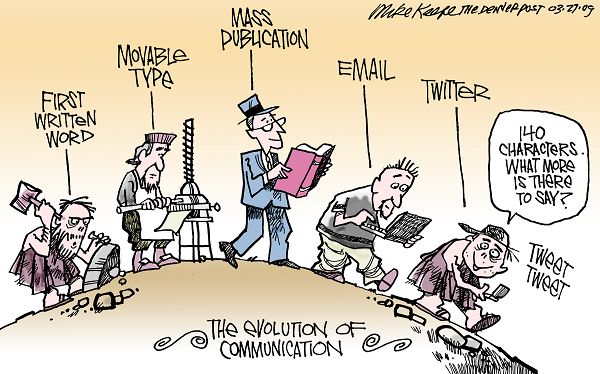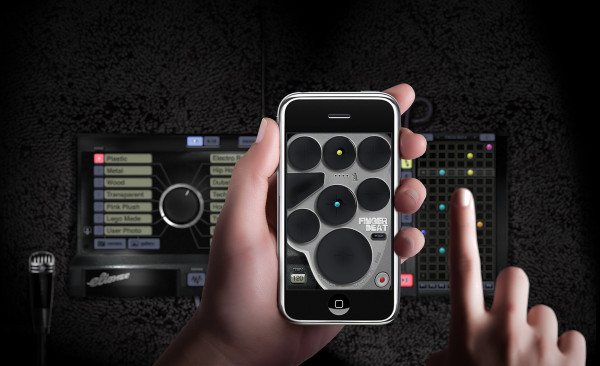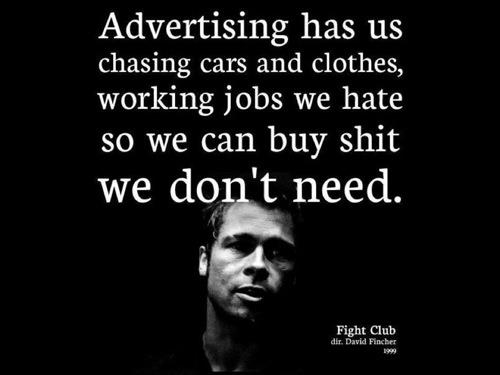1. Discuss the phrase “the printing press is the machine that made us”.
The printing press was the world’s first mass book production machine, and the consequences of its invention was just as dramatic as the discovery of fire. We could say that the printing press is a, if not the, precursor of mass production, and contributed heavily in sparking off a cultural revolution that shaped the modern age.
Seeing as how we find it difficult or even impossible to live without objects/services that are results of mass production, it is safe to say that the printing press has changed many, if not all, facets of the society that we live in today. One could almost make the claim that the printing press was the “internet of the 14th century”, transforming the way ordinary people lived, learned and experienced life.
To start, mass production of books allowed knowledge and ideas to reach virtually every corner of the world. Take the bible for example - the first print run and subsequent books on Gutenburg’s printing press were (in all intents and purposes) perfect. Each contained an accurate, duplicated version of the bible; in an exact same spatial format, on multiple pieces of bound paper. This new medium was a powerful start that helped that Christianity gain an even stronger foothold by reaching unprecedented amount of devotees - those who did not have access to churches and thus scripture, before.
The printing press also shattered the concept where only the rich were privileged enough to read (be it for education or for leisure); and education was no longer a luxury for the poor. This spread of knowledge allowed society to advance at a breakneck pace, with the poor being empowered with new alternative ways to succeed in life, which, in turn, brought about a major leap in the economy - culminating in the industrial revolution.
The printing press has also lubricated the process of propaganda - with good examples being China and North Korea. With state-owned or controlled media, these countries have pressed the agenda (pardon the pun) of their dominant political parties to great effect; shaping the ideals and even the very foundations of society. By limiting and/or offering only one type of teaching, an ideology quickly becomes truth, a party-line viewpoint - the only way of life.
The printing press has also “made” us by influencing our decisions. As a direct result of the printing press, new industries - most key being advertising, journalism, and teaching, have risen to the forefront of our lives. Nowadays, most, if not all of, our decisions are the result these industries, “helping” us decide on how to consume, purchase and lead our lives.
Other than the printing press, there have been several technologies / machines in history that have been major “life-shakers”. These include the telephone, which has virtually eliminated the distances one can communicate with each other (but now surpassed by the internet), electricity, which powers objects that are ubiquitous in our daily lives, atomic power, which gave us microwaves, x-rays, nuclear power and nuclear weapons, and the combustible engine, which transformed our transportation options. Each of these technologies has each improved the human race, and has lasting ramifications that continue to shape our lives today.
2. Have our lives been “determined” by technology?
We happen to think so. Firstly, technology has become ubiquitous, with many people literally born into families that have in part, or fully embraced technology. With exposure to technology so early, children are “learning to learn” via technology, and will become more adept at it, from an earlier age. On the flip side, activities that used to be more physical in nature have been relegated into device-driven pursuits. For example, as children, we used to catch spiders / butterflies in our physical gardens and backyards. Now, we see the younger generation using iPads to do so. This knowledge that is separated from experience can be witnessed with alarming frequency in our modern lives - you can “learn” how to knit, cook, farm, or even learn about other countries’ culture without ever having to leave the comfort of your house.
Industrialisation was made possible with technological advances, which constituted the measurement of our work efficiency timeframe today. Before industrialisation took place, the agricultural societies worked with seasons, whereas in modern context, there are different expectations of work efficiency that requires jobs to be done within a much shorter timeframe. This brought about the formation of the Monday to Friday work week which has evolved from agricultural societies using seasons to measure working time frames. Hence, it has changed the way people view time and changed their standards of efficiency.
Job opportunities were also created with advances in technology, with talent and manpower needed to operate the new elements that had resulted it. Take the printing press as an example. The emergence of the print created job opportunities for writers, photographers, font-makers, printers, and even newspaper vendors, just to name a few, and illustrates the impact of the technology on the economy.
Technology has also created a new wave of digitization for our very bodies. Our five senses can now be completely governed by technology. Memories that used to be captured through films and kept in shoeboxes in our basements, can now be better preserved with photo archives such as Flickr and other cloud storage services, making our memories almost imperishable. Actions and thoughts that used to be so personal are now being archived digitally through blogs and Tweets. In addition, technology has provided a different shopping experience with commodities from industries ranging from IT to fashion to furniture; retail therapy no longer has squeezing through the weekend crowd and dealing with that salesperson who just can't stop hovering in its equation.
On the flipside, technology forces us to fit into a new set of rules whilst embracing it. For instance, with the rampant usage of social media, businesses now set up new departments just to target the audiences through social media. Businesses that do not follow suit will eventually lose the attention of its audiences.
It is also common to hear people say that technology has ruined relationships of today. With the ease of communication, people no longer see the need to block time out of their busy schedules just to catch up with their correspondence, leading to social ineptness in the society.
Despite the conveniences brought about by technology advancements, we feel that the manufacturers of items have also become the consumers of the items that they create. As technology becomes the goal, and we need to constantly keep up with being on the cusp of technological advances (however fleetingly). This need is “drilled” into us via advertising, peer pressure and our innate desire to keep up.
The printing press was the world’s first mass book production machine, and the consequences of its invention was just as dramatic as the discovery of fire. We could say that the printing press is a, if not the, precursor of mass production, and contributed heavily in sparking off a cultural revolution that shaped the modern age.
Seeing as how we find it difficult or even impossible to live without objects/services that are results of mass production, it is safe to say that the printing press has changed many, if not all, facets of the society that we live in today. One could almost make the claim that the printing press was the “internet of the 14th century”, transforming the way ordinary people lived, learned and experienced life.
To start, mass production of books allowed knowledge and ideas to reach virtually every corner of the world. Take the bible for example - the first print run and subsequent books on Gutenburg’s printing press were (in all intents and purposes) perfect. Each contained an accurate, duplicated version of the bible; in an exact same spatial format, on multiple pieces of bound paper. This new medium was a powerful start that helped that Christianity gain an even stronger foothold by reaching unprecedented amount of devotees - those who did not have access to churches and thus scripture, before.
The printing press also shattered the concept where only the rich were privileged enough to read (be it for education or for leisure); and education was no longer a luxury for the poor. This spread of knowledge allowed society to advance at a breakneck pace, with the poor being empowered with new alternative ways to succeed in life, which, in turn, brought about a major leap in the economy - culminating in the industrial revolution.
The printing press has also lubricated the process of propaganda - with good examples being China and North Korea. With state-owned or controlled media, these countries have pressed the agenda (pardon the pun) of their dominant political parties to great effect; shaping the ideals and even the very foundations of society. By limiting and/or offering only one type of teaching, an ideology quickly becomes truth, a party-line viewpoint - the only way of life.
The real communist party
The printing press has also “made” us by influencing our decisions. As a direct result of the printing press, new industries - most key being advertising, journalism, and teaching, have risen to the forefront of our lives. Nowadays, most, if not all of, our decisions are the result these industries, “helping” us decide on how to consume, purchase and lead our lives.
Other than the printing press, there have been several technologies / machines in history that have been major “life-shakers”. These include the telephone, which has virtually eliminated the distances one can communicate with each other (but now surpassed by the internet), electricity, which powers objects that are ubiquitous in our daily lives, atomic power, which gave us microwaves, x-rays, nuclear power and nuclear weapons, and the combustible engine, which transformed our transportation options. Each of these technologies has each improved the human race, and has lasting ramifications that continue to shape our lives today.
2. Have our lives been “determined” by technology?
We happen to think so. Firstly, technology has become ubiquitous, with many people literally born into families that have in part, or fully embraced technology. With exposure to technology so early, children are “learning to learn” via technology, and will become more adept at it, from an earlier age. On the flip side, activities that used to be more physical in nature have been relegated into device-driven pursuits. For example, as children, we used to catch spiders / butterflies in our physical gardens and backyards. Now, we see the younger generation using iPads to do so. This knowledge that is separated from experience can be witnessed with alarming frequency in our modern lives - you can “learn” how to knit, cook, farm, or even learn about other countries’ culture without ever having to leave the comfort of your house.
Industrialisation was made possible with technological advances, which constituted the measurement of our work efficiency timeframe today. Before industrialisation took place, the agricultural societies worked with seasons, whereas in modern context, there are different expectations of work efficiency that requires jobs to be done within a much shorter timeframe. This brought about the formation of the Monday to Friday work week which has evolved from agricultural societies using seasons to measure working time frames. Hence, it has changed the way people view time and changed their standards of efficiency.
Job opportunities were also created with advances in technology, with talent and manpower needed to operate the new elements that had resulted it. Take the printing press as an example. The emergence of the print created job opportunities for writers, photographers, font-makers, printers, and even newspaper vendors, just to name a few, and illustrates the impact of the technology on the economy.
Technology has also created a new wave of digitization for our very bodies. Our five senses can now be completely governed by technology. Memories that used to be captured through films and kept in shoeboxes in our basements, can now be better preserved with photo archives such as Flickr and other cloud storage services, making our memories almost imperishable. Actions and thoughts that used to be so personal are now being archived digitally through blogs and Tweets. In addition, technology has provided a different shopping experience with commodities from industries ranging from IT to fashion to furniture; retail therapy no longer has squeezing through the weekend crowd and dealing with that salesperson who just can't stop hovering in its equation.
Not only that, technology also played a part in our cultural exposition, in terms of entertainment such as music, art and literature. For instance, not only can music be purchased online, aspiring music-makers can simply upload videos of their work online. This also brought about a wave of new music genre: YouTube cover stars like Boyce Avenue and Jayesslee. Everyone can also become a self-taught musician with music-making sites or apps made readily available.
On the flipside, technology forces us to fit into a new set of rules whilst embracing it. For instance, with the rampant usage of social media, businesses now set up new departments just to target the audiences through social media. Businesses that do not follow suit will eventually lose the attention of its audiences.
It is also common to hear people say that technology has ruined relationships of today. With the ease of communication, people no longer see the need to block time out of their busy schedules just to catch up with their correspondence, leading to social ineptness in the society.
Despite the conveniences brought about by technology advancements, we feel that the manufacturers of items have also become the consumers of the items that they create. As technology becomes the goal, and we need to constantly keep up with being on the cusp of technological advances (however fleetingly). This need is “drilled” into us via advertising, peer pressure and our innate desire to keep up.




No comments:
Post a Comment